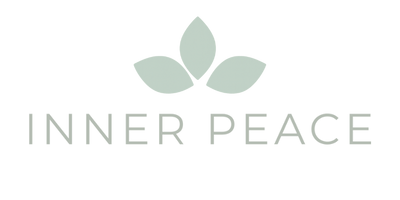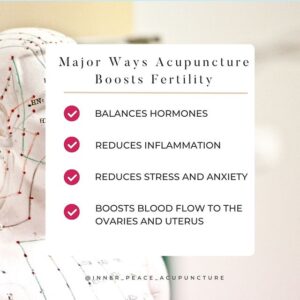What Is Acupuncture
If you’re trying to get pregnant, you might have thought about acupuncture. It is becoming increasingly popular as an option to seriously boost fertility. In fact, the number of women who are receiving acupuncture treatments for infertility has increased by over 40% since 2014.
Acupuncture is a safe and effective procedure with virtually zero side effects that people of all ages can benefit from. It is one of the oldest forms of medicine in existence. The earliest known written record of Chinese medicine is the Huangdi Neijing (The Yellow Emperor’s Inner Classic) from the 3rd century BCE. This text provided theoretical concepts for traditional Chinese medicine (TCM) that continue to serve as the basis of practice today. However, what is interesting is that the use of acupuncture may have been present in China long before the development of the Huangdi Neijing. One theory is that acupuncture was first developed in China during the Stone Age, approximately 10,000 years ago!
Over the centuries, acupuncture has been used by millions of people across the world and is still used today by doctors and patients alike. It has been endorsed by the World Health Organization (WHO) as an effective treatment for many conditions, including infertility.
How Does Acupuncture for Fertility Work
The theory is that energy flows through the body in pathways called meridians and is blocked by pain or disease. The goal of acupuncture is to remove the blockage so that your body can heal itself naturally without medication or surgery.
Acupuncture is believed to work for fertility through various mechanisms. One of the key ways is by stimulating blood flow to the ovaries and uterus, which can enhance fertility.
Additionally, it promotes relaxation and reduces stress levels, which can be beneficial for individuals experiencing infertility. By manipulating the needles, acupuncture stimulates nerve endings deep below the skin, activating the nerves and promoting the release of substances called endorphins. This can have a positive effect on the hormonal and physiological processes involved in fertility.
Moreover, acupuncture stimulates the release of certain neurotransmitters and hormones, thus helping with regulating the menstrual cycle and reproductive hormone balance. That means it can be used to address specific fertility-related issues like elevated follicle-stimulating hormone (FSH), unexplained infertility, luteal phase defect, and polycystic ovarian syndrome (PCOS).
The Evidence
Here at Inner Peace Acupuncture, we have a 70% success rate with women getting pregnant within 6 months of beginning treatment. Some further encouraging results can be found in the following scientific studies that have proven acupuncture’s effectiveness in treating infertility:
- In a randomized controlled trial, acupuncture was examined as a complementary therapy for polycystic ovary syndrome (PCOS), a common cause of female infertility. The study found that acupuncture significantly improved both ovulation rates and menstrual frequency in women with PCOS, suggesting its potential benefits in enhancing fertility for those with this condition.
- Another study explored the effects of acupuncture on ovarian reserve, an indicator of a woman’s reproductive potential. The research showed that acupuncture could help improve ovarian reserve markers, such as anti-Mullerian hormone (AMH) levels and antral follicle count (AFC). This indicates that acupuncture might positively impact a woman’s fertility by supporting her ovarian function.
- A systematic review and meta-analysis investigated the impact of acupuncture on women with idiopathic infertility, a term used when the cause of infertility is unknown. The analysis revealed that acupuncture significantly increased the overall pregnancy rate compared to no acupuncture. This suggests that acupuncture might offer a promising option for women facing unexplained infertility.
In summary, acupuncture is a great option for women who are struggling with infertility. It’s safe and offers many benefits, from reducing anxiety to building the general health of the body. But remember, Fertile Friend, these studies convey the potential benefits of acupuncture in the context of fertility. Everyone’s journey is unique, and it’s important to find a reputable acupuncturist who is ideally a fertility specialist who can help you navigate this path to motherhood.
If you have more questions about how acupuncture can help you, please don’t hesitate to reach out to us for a free discovery call.





